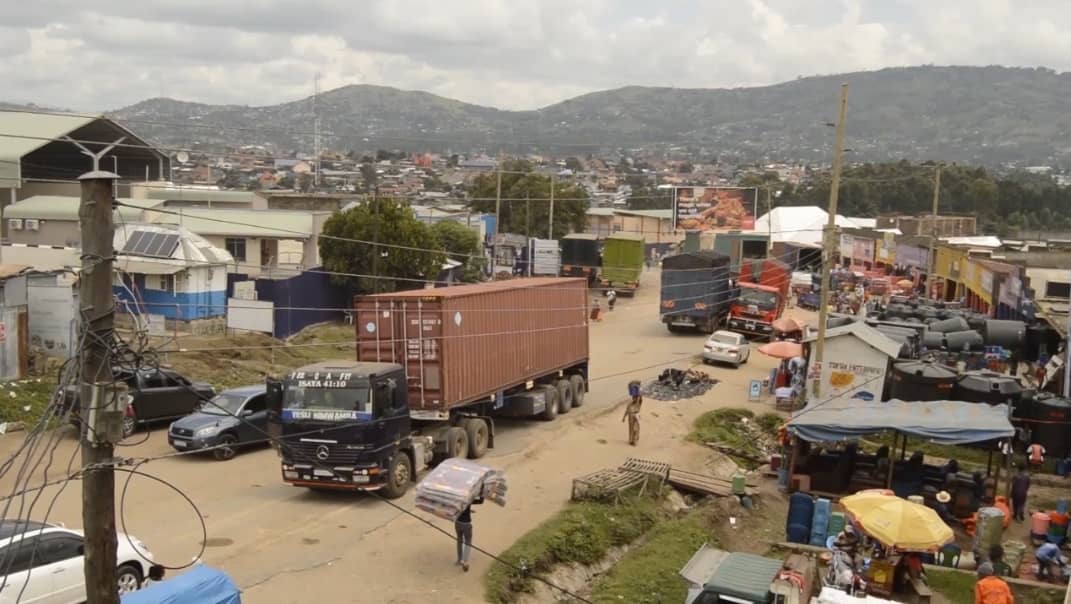Mpondwe Border Traders Decry Harsh Taxes, Urge Leaders to Act

Trade at the Mpondwe border point in Kasese District is thriving, fuelled by high demand from the Democratic Republic of Congo.
Yet behind the apparent boom, small-scale vendors—especially the youth—are raising alarms about punitive taxes and the absence of political leadership to advocate for their needs.
Widely regarded as one of Uganda’s busiest and most economically vibrant border points, Mpondwe serves as a vital artery linking Uganda to eastern Congo. But for many local traders, the benefits are not trickling down evenly.
“This is one of the most active markets—truly a blessing for our region. But we must organize better as local residents and traders,” said Dr Crispus Kiyonga, a senior political figure and former Minister of Defence.
“We also need harmony with the Uganda Revenue Authority (URA) to ensure ordinary people benefit without unnecessary harassment.”
Dr Kiyonga emphasized the need to differentiate between large-scale importers and small vendors when enforcing tax policies.
“You can't treat someone bringing one jerrycan of palm oil the same as a person importing a full truck. The system must recognize that difference,” he said.
His concerns are shared by young traders like Muhammad Faisal, who say they are being taxed out of business.
“As young people, we’re struggling. If you don’t have capital, you can’t do business here. Even those who manage, the taxes are just too high. We are asking the government to reduce them, especially for youth trying to earn a living,” Faisal said.
He also questioned the fairness of the Shs10,000 border crossing fee, which is inconsistently applied across Kasese.
“Why should someone from Bwera cross for free, and I from Kilembe or Karusandara pay? We’re all Ugandans. The border trade should benefit the whole district, not just a few,” Faisal argued.
Others, like Suleiman Machozi, said the frustration is worsened by a lack of engagement from elected leaders.
“We have not had a chance of our leaders coming to listen to our grievances. That leaves us with the same problems year in, year out,” Machozi noted.
As the border continues to draw commerce and congestion, the traders say it is time for a more inclusive system—one that protects and empowers the small trader instead of leaving them behind.
Their demands include fair taxation, youth-friendly policies, and proactive political leadership to ensure Mpondwe’s growth is felt across the district, not just among a privileged few.



0 Comments